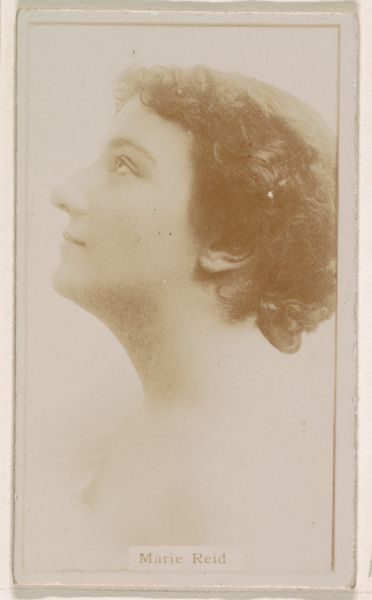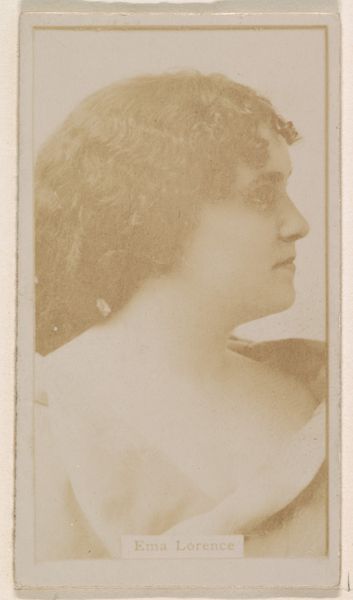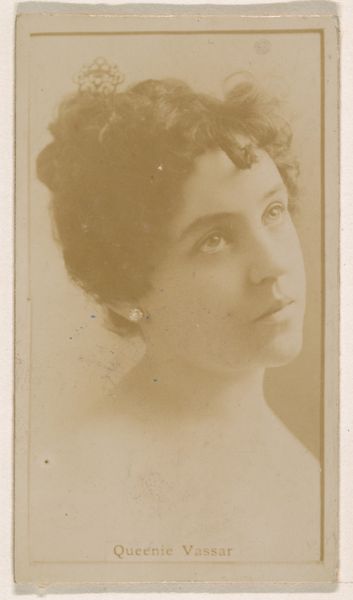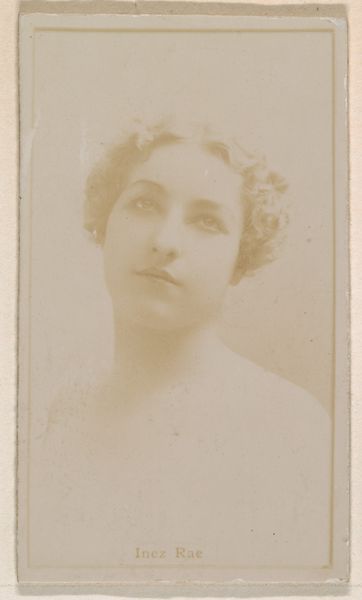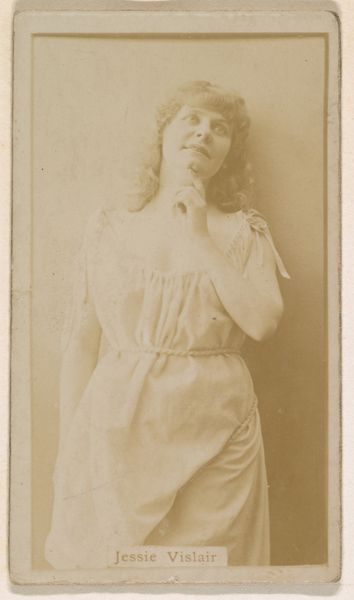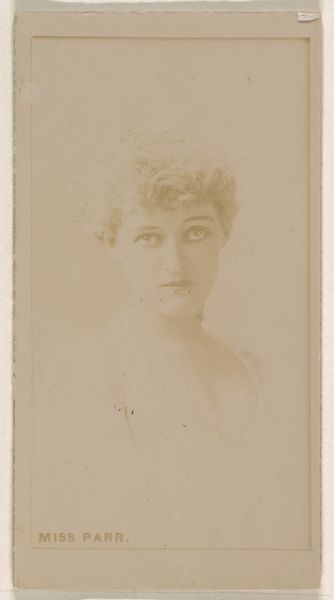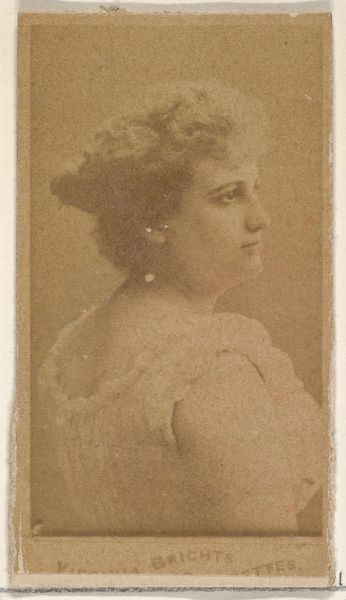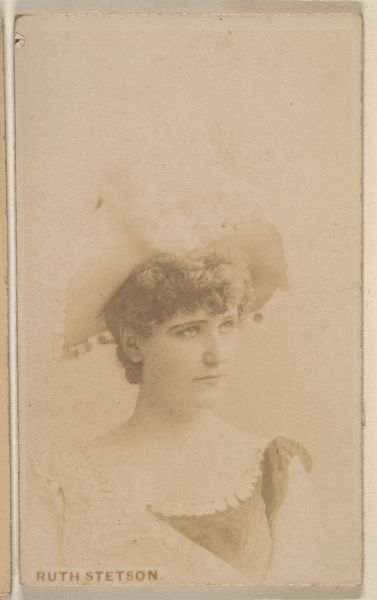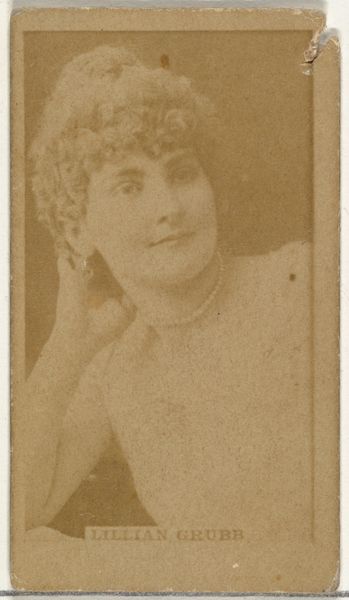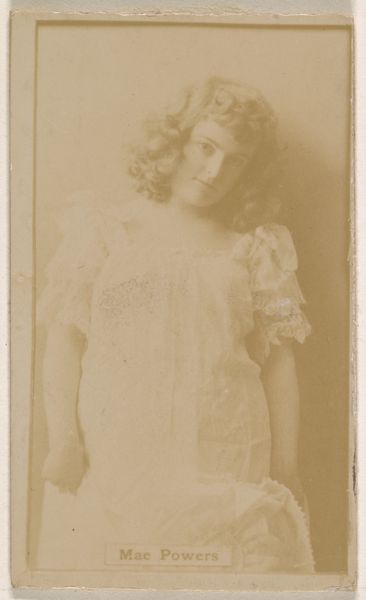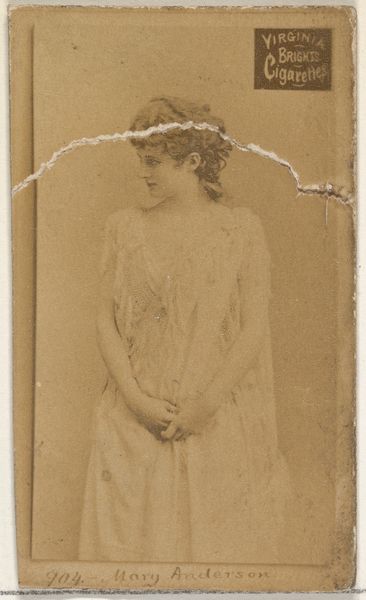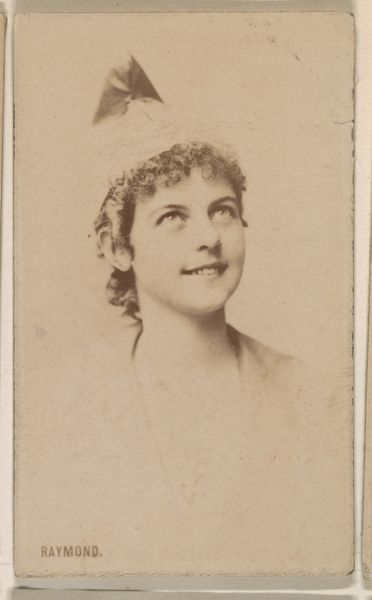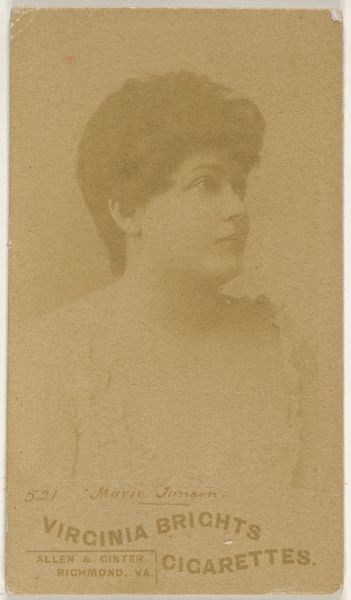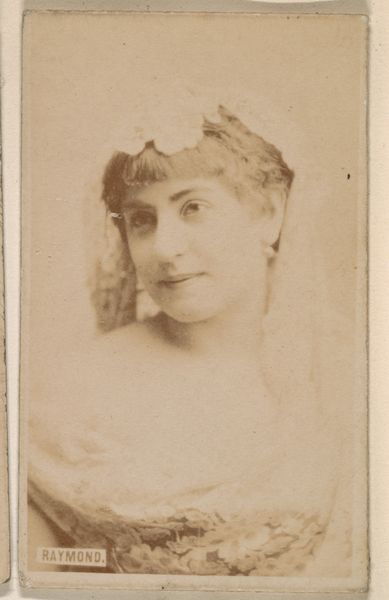
Lillian Lewis, from the Actresses series (N245) issued by Kinney Brothers to promote Sweet Caporal Cigarettes 1890
0:00
0:00
drawing, print, photography
#
portrait
#
drawing
#
pictorialism
# print
#
photography
Dimensions: Sheet: 2 1/2 × 1 7/16 in. (6.4 × 3.7 cm)
Copyright: Public Domain
Curator: Well, the subject certainly evokes an air of delicate pensiveness, doesn't she? A touch melancholic, perhaps even a smidge otherworldly. Editor: From a distance, this "Lillian Lewis" from 1890, appears simply a delicate photographic portrait, but in fact it was manufactured as part of a collectible series of actress cards put out by Kinney Brothers Tobacco Company to promote Sweet Caporal Cigarettes. Curator: Ah, Sweet Caporal! So, Lillian’s selling more than just her face here. Makes me wonder about her performance roles. Were they equally delicate and alluring, I wonder? Did she get free cigarettes? Editor: Absolutely. This was capitalist image making on a massive scale, an intersection of celebrity culture and industrial production where art served commercial ends, where individual identity was literally packaged and commodified for mass consumption. The photographic printing, the card stock itself... the mass produced image as ephemeral and collectible. Curator: It is bittersweet in a way; these fragments become what remains. To think, this ephemeral promotional print, imbued with the aspirations of artistry, surviving more reliably than memories or stories. Is that not, ironically, how we make ghosts? By capturing fleeting glimpses in static form, freezing time and turning the person into something to collect and possess. Editor: Certainly a tension there! Lillian’s essence or likeness replicated thousands of times for distribution. The tension between the personal and the mass produced, between "high art" portraiture, in the pictorialist style, and what ultimately is lowbrow ephemera, meant to be collected casually in pursuit of a capitalist market, complicates notions of both originality and artistic intention. It suggests portraiture became industrial. Curator: It gives you pause to contemplate the hands involved doesn’t it? The many hands that produced and then possessed it? To imagine its journey and what lingers now as echo or aura of a long-gone human moment. It all speaks so elegantly. Editor: Exactly, it is a document of mass production, the celebrity promotional card, and late-19th century image economies, all circulating in the social space between labor, desire, and tobacco consumption. A small thing carrying a multitude of details.
Comments
No comments
Be the first to comment and join the conversation on the ultimate creative platform.
